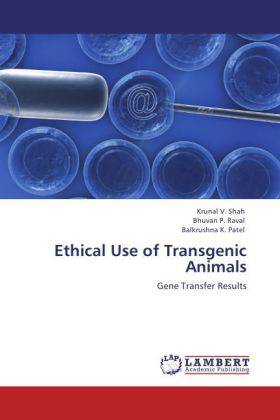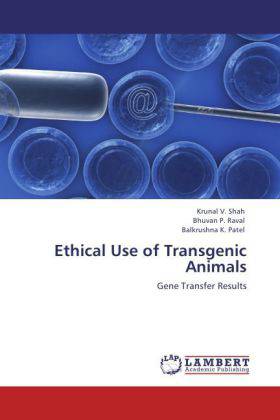
- Afhalen na 1 uur in een winkel met voorraad
- Gratis thuislevering in België vanaf € 30
- Ruim aanbod met 7 miljoen producten
- Afhalen na 1 uur in een winkel met voorraad
- Gratis thuislevering in België vanaf € 30
- Ruim aanbod met 7 miljoen producten
Zoeken
Ethical Use of Transgenic Animals
Gene Transfer Results
Krunal V Shah, Bhuvan P Raval, Balkrushna K Patel
Paperback | Engels
€ 48,45
+ 96 punten
Omschrijving
Disease models such as the oncomouse and the Alzheimer's mouse have been hugely influential in the body of support for transgenic animals as they exhibit the most important of potential human benefits: aiding our understanding and treating life threatening illness. The use of animals for testing treatments is necessary because of the ethical gulf which prevents us from performing initial tests on humans. Biopharming represent another means of improving the human condition by producing human proteins in their milk, blood or eggs. The resultant protein can then be purified and used to treat medical needs. we focused on the ethics of making and using transgenic animals as per CCAC, with pros and cons for each category. Is says also that the given 'three Rs' should be followed as possible. The most obvious benefit to humans is from continued research using disease models, but when people claim that animal suffering, "playing God," and destroying the animal's integrity are unethical in the use of transgenic.
Specificaties
Betrokkenen
- Auteur(s):
- Uitgeverij:
Inhoud
- Aantal bladzijden:
- 56
- Taal:
- Engels
Eigenschappen
- Productcode (EAN):
- 9783847337836
- Verschijningsdatum:
- 6/01/2012
- Uitvoering:
- Paperback
- Formaat:
- Trade paperback (VS)
- Afmetingen:
- 152 mm x 229 mm
- Gewicht:
- 95 g

Alleen bij Standaard Boekhandel
+ 96 punten op je klantenkaart van Standaard Boekhandel
Beoordelingen
We publiceren alleen reviews die voldoen aan de voorwaarden voor reviews. Bekijk onze voorwaarden voor reviews.











